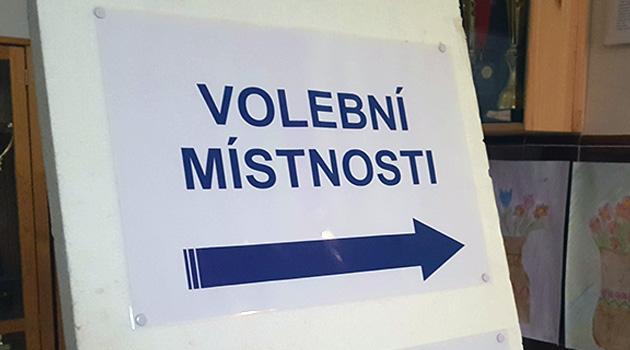Czech citizens living abroad can vote in October elections, deadline to register at consulate or embassy is 29 August

Elections to the Chamber of Deputies of the Czech Republic are just around the corner. On 8 and 9 October, citizens will have the opportunity to choose the political party that most fulfills their ideas of which direction the state should take for the next four years.
If you are a Czech citizen living abroad, or if you will be abroad during the elections, you will not lose your opportunity to vote. Each consular office and embassy of the Czech Republic has a special voting precinct where you can cast your ballot.
The only exception is consulates run by honorary consular bureaucrats – it is not possible to vote in those offices. You must choose one of the following ways to register as a valid voter in order to take advantage of the opportunity:
1. VOTING BASED ON REGISTRATION AT THE CONSULATE OR EMBASSY
There is no form to complete if you are making a written request to be registered on this list. Just send a message stating that you are requesting registration on the Special List of Voters (Zvláštní seznam voličů). You must include a notarized copy of documents confirming your identity, citizenship and permanent address, in other words, your identity card.
The request must be delivered to the consulate or embassy at least 40 days prior to the elections, which means 29 August 2021 is the deadline. If you are registered on the Special List while your permanent address is still on Czech territory, you will be removed from the voter rolls kept by the local authority in the place where you have permanent residency.
That means that if you will want to vote in these same elections on Czech territory in 2025, you will have to ask the consulate or embassy to remove you from the Special List. This first option is appropriate for those who have long lived abroad but still have Czech citizenship.
2. VOTING BASED ON A VOTER CARD
The second option is to request a voter card. This is more appropriate for those who prefer to communicate electronically and you can apply for it electronically up until 1 October 2021 at the relevant consulate or embassy.
There is one catch with this option: You must have an official data mailbox set up. There is no form to complete.
The request should include the voter’s name and surname, date of birth, address of permanent residence and preferred method of delivery for the voter card. WARNING: Your signature must be verified by notary, even if you are communicating electronically.
The authority will issue the voter card 15 days prior to the elections at the earliest, i.e., on 23 September. They will give it to the voter in person, or to whomever has a power of attorney for the voter with a notarized signature, or will send it to the voter per the voter’s instructions.
The voter card can also be sent to the consulate or embassy where the voter has decided to cast his or her ballot, if the voter so requests. This option is usually used by those who live in the Czech Republic but will be abroad during the election, whether for business or pleasure.
In this case, the voter visits the consulate or embassy on the election day, picks up the voter card, and casts his or her ballot. You will receive the ballot at the polling place in exchange for your voter card.
The State Electoral Commission has randomly chosen the Ústecký Regional Authority to handle all of the Special Voting Precincts abroad. That means voters who cast ballots abroad will be voting for candidates from that region, where a closely-watched contest is underway between the two main candidates, incumbent Prime Minister Andrej Babiš and Ivan Bartoš, chair of the Pirates.
If you decide, at the last minute, that you would instead prefer to vote for candidates in the precinct where you have your permanent residence, and if that precinct is not in the Ústecký Region, then you will have to turn in your voter card to the electoral commission for that precinct – there will not be any other way for you to cast a ballot there if you request a card. The list of consulates and embassies where it is possible to request registration on the Special List or a voter card, including contact information, is available on the website of the Czech Foreign Affairs Ministry.
